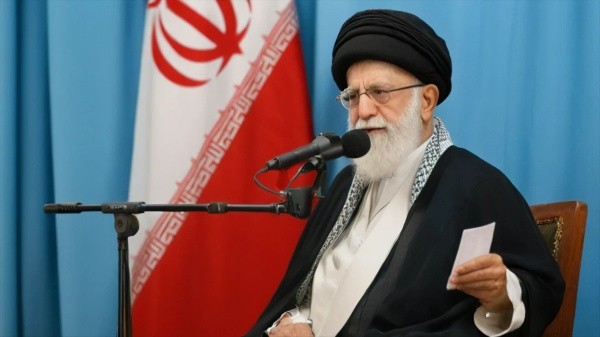Iran’s Plan to Strike Back Against the U.S.
Iran’s Military Preparations Following U.S. Attacks
Loading...

Supreme leader defends Iran’s attack on Israel as ‘legitimate’, and calls on Muslim countries to unite.
A Call for Unity Among Muslim Nations
In a significant and rare public address, Iran's Supreme Leader Ayatollah Ali Khamenei declared that Iran and its regional allies will not retreat in the face of Israeli aggression. Speaking during Friday prayers at the Imam Khomeini Grand Mosalla mosque in Tehran, Khamenei emphasized the need for solidarity among Muslim nations against a common adversary. This sermon marked his first public appearance since Iran launched a substantial missile attack on Israel, firing approximately 200 ballistic missiles in retaliation for the recent killings of key figures from Hezbollah, Hamas, and Iran's Islamic Revolutionary Guard Corps (IRGC).
Justifying Iran's Actions
Khamenei characterized Iran's missile strike as a “legal and legitimate” response to what he described as the “heinous crimes” committed by Israel. He asserted that the resistance in the region would remain steadfast, even in the wake of the deaths of its leaders. “The operations were … in return for the heinous crimes committed by this bloodthirsty criminal entity,” he stated, reinforcing Iran's commitment to its allies while promising a measured approach to military actions. Khamenei stressed that Iran would not act impulsively but would adhere to decisions made by its political and military leadership.
Context of the Address
The timing of Khamenei's sermon is particularly poignant, occurring just before the first anniversary of Hamas's October 7 attack on Israel, which ignited a conflict resulting in the deaths of over 41,700 Palestinians. The situation has escalated with Iran's proxies, including Hezbollah and armed groups in Iraq, conducting operations in support of Palestinians amid the ongoing Gaza war. Khamenei's address served as a powerful reminder that Iranian authorities are not retreating or hiding from the conflict, as noted by Al Jazeera's Resul Serdar.
Rallying Call for Muslim Solidarity
Khamenei's message extended beyond Iran, urging Muslim nations from “Afghanistan to Yemen, from Iran to Gaza and Lebanon” to unite against Israel, which he accused of waging “psychological,” “economic,” and “military” warfare. He emphasized that the enemy is singular and that divisions within Muslim countries only serve to empower Israel. “If their policies are sowing the seeds of division in one country, they may prevail and once they seize control of one country, they move to the other,” he warned.
This call for unity comes in response to criticisms that Iran has isolated itself from the region over the past decade. Khamenei's focus on solidarity reflects a recognition of the real possibility of a regional war, prompting him to advocate for a collective response to mitigate this threat.
Recent Developments and Escalation
Khamenei's sermon followed a commemoration for Hassan Nasrallah, the Hezbollah leader killed in an Israeli strike, alongside IRGC General Abbas Nilforoushan. The situation remains tense, with Israel recently launching a ground offensive in southern Lebanon and conducting airstrikes in Beirut targeting senior Hezbollah figures. In response to these developments, Iran has warned that any Israeli attack on its territory would provoke an “unconventional response,” potentially targeting critical infrastructure.
US President Joe Biden has indicated that Israel's military response could extend to Iranian oil facilities, further complicating the already volatile situation. As tensions escalate, Khamenei's call for unity among Muslim nations may be seen as a crucial step in addressing the challenges posed by Israeli actions in the region.
Editor
Iran’s Military Preparations Following U.S. Attacks
Troops remain in five strategic locations, raising fears of renewed tensions and long-term occupation.
Opposition forces have taken control of the capital after a significant offensive. Here is how it unravelled.
